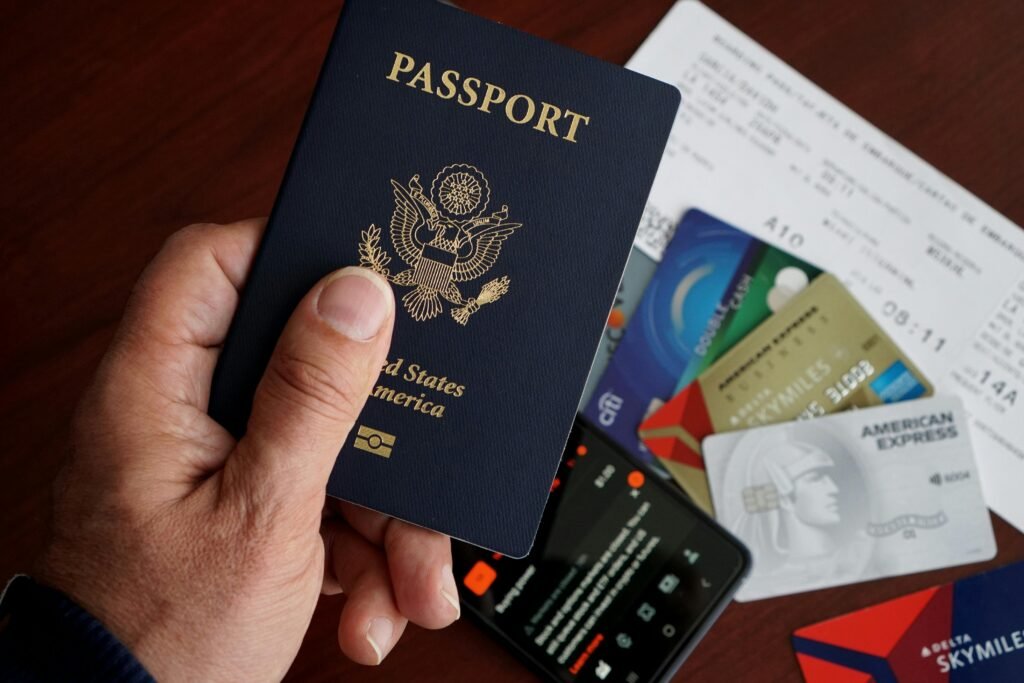In 2024, Italy granted more than 180,000 work permits to non-EU nationals — a 23% rise compared to the previous year.
Italy’s job market is booming in specific sectors, and if you know where to look, you can significantly increase your chances of not just getting hired, but actually securing that coveted work visa sponsorship.
The key isn’t just having skills – it’s having the RIGHT skills in the RIGHT industries that Italian employers desperately need filled.
In this guide, I’ll walk you through the top high-demand jobs that can help you secure a work visa for Italy, based on real data from Italy’s immigration office and my own experience helping people make this transition successfully.
Technology and IT Positions

Italy’s tech sector is absolutely exploding right now, and honestly, it’s probably your best bet for visa sponsorship.
I’ve personally seen more success stories in tech than any other field.
Software Developers and Engineers The demand here is insane. Italian companies are struggling to find qualified developers, especially in:
- Full-stack development (React, Node.js, Python)
- Mobile app development (iOS/Android)
- Cloud computing specialists (AWS, Azure, Google Cloud)
- DevOps engineers
- Cybersecurity specialists
I remember talking to a hiring manager in Milan who told me they’d been trying to fill a senior React developer position for eight months. Eight months! That’s the kind of desperation that leads to visa sponsorship.
Data Scientists and AI Specialists This field is growing like crazy in Italy. Companies are finally realizing they need data-driven decision making, and there just aren’t enough local experts.
Data scientists in Italy typically earn between €35,000 and €60,000 annually — comfortably above the minimum income required for a work visa. Plus, many companies are willing to provide relocation packages.
Cybersecurity Professionals With all the digital transformation happening, cybersecurity has become a top priority. Italian companies are getting hit with cyber attacks left and right, and they need protection.
The cool thing about cybersecurity roles is that many Italian companies will hire you even if you’re still getting certified, as long as you have some basic experience and show potential.
Healthcare and Medical Professionals

Healthcare is probably the second-best sector for visa sponsorship, but it comes with more bureaucratic hurdles.
The good news? Italy has a serious shortage of healthcare workers, especially after COVID.
Demand for Nurses and Healthcare Assistants in Italy is at an all-time high. Italy desperately needs nurses, and they’re actively recruiting from other countries. I know several Filipino and Indian nurses who got their visas through Italian hospitals.
The catch? You’ll need to get your qualifications recognized by the Italian authorities, which can take 3-6 months. But once you’re in, job security is excellent.
Doctors and Specialists If you’re a medical doctor, you’re golden – but the path is complicated. You’ll need:
- Medical degree recognition
- Italian language proficiency (usually B2 level minimum)
- Passing a state exam
- Specialization recognition if applicable
I won’t sugarcoat it – this process can take over a year. But the payoff is substantial, with salaries ranging from €50,000-100,000+ depending on specialization.
Physiotherapists and Allied Health These roles are in high demand, especially in northern Italy where the population is aging rapidly. The visa process is typically faster than for doctors, and language requirements are sometimes more flexible.
Engineering and Manufacturing

Italy’s manufacturing sector is still incredibly strong, and they need skilled engineers badly.
Mechanical and Industrial Engineers Northern Italy (think Turin, Milan, Bologna) is packed with manufacturing companies that can’t find enough qualified engineers. I’ve seen visa sponsorship happen within 60 days for the right candidates.
The automotive sector is particularly hot right now with the shift to electric vehicles. Companies like Stellantis (formerly Fiat Chrysler) are hiring aggressively.
Civil Engineers and Construction Managers With Italy’s massive infrastructure projects and post-pandemic rebuilding efforts, civil engineers are in crazy high demand.
The best opportunities are in:
- Infrastructure development
- Sustainable construction
- Project management
- Urban planning
Salaries typically range from €30,000-55,000, and many positions come with housing allowances or company cars.
Hospitality and Tourism Management

Here’s where my personal experience really kicks in. I worked in Italian hospitality for two summers, and let me tell you – they’re always struggling to find qualified management-level staff.
Hotel and Resort Managers Italy’s tourism industry employs over 4 million people, but there’s a shortage of qualified managers who speak multiple languages and understand international hospitality standards.
The visa sponsorship rate is pretty good if you have:
- 3+ years management experience
- Multiple language skills (English + Italian minimum)
- International hotel chain experience
- Hospitality degree or equivalent
Restaurant and Food Service Management This might surprise you, but high-end restaurants and food service companies in Italy actively recruit international talent. They want people who understand global food trends and can manage diverse teams.
I know a chef from Thailand who got sponsored by a restaurant group in Rome. The key was his expertise in fusion cuisine and his business management background.
Skilled Trades and Technical Positions

Don’t overlook skilled trades! Italy has a massive shortage of qualified tradespeople, and these jobs often offer faster visa processing.
Electricians and Plumbers Especially if you have experience with renewable energy systems or smart home technology. The green energy transition in Italy has created tons of opportunities.
You’ll need to get your certifications recognized, but many employers will help with this process if they really need you.
Welders and Metal Workers Manufacturing and shipbuilding industries in Italy need skilled welders desperately. If you have specialized welding certifications (underwater welding, aerospace welding, etc.), you’re looking at excellent visa sponsorship potential.
The shipping industry around Genoa and Naples is particularly active right now.
Teaching and Education

This sector can be tricky, but there are solid opportunities if you know where to look.
English Language Teachers Private language schools and international schools regularly sponsor visas for qualified English teachers. You’ll typically need:
- TEFL/TESOL certification
- Bachelor’s degree (preferably in English, Education, or related field)
- Native or near-native English proficiency
The pay isn’t amazing (€20,000-30,000 typically), but it meets visa requirements and offers great quality of life.
International School Teachers If you’re a certified teacher in subjects like math, science, or have specialized skills, international schools in Milan, Rome, and Florence actively recruit globally.
These positions often come with housing assistance and other benefits that make the transition much easier.
Finance and Business Services

Italy’s financial sector is modernizing rapidly, creating opportunities for international professionals.
Financial Analysts and Advisors Especially if you have experience with international markets or speak multiple languages. Italian banks and investment firms are expanding globally and need people who understand different markets.
Digital Marketing Specialists Italian companies are finally catching up with digital transformation, and they need people who really understand online marketing, social media, and e-commerce.
I’ve seen several successful visa sponsorship cases for people with Google Ads, Facebook advertising, and SEO expertise.
Understanding Italy’s Work Visa Requirements
The Italian government prioritizes certain professions through what’s called the “Decreto Flussi” (Flow Decree).
This annual decree essentially tells us which jobs Italy needs most. And trust me, this changes every year based on economic needs and labor shortages.
Here’s what I’ve noticed makes a huge difference: employers are way more likely to sponsor your visa if you’re filling a role they genuinely can’t find Italian or EU workers for. It’s not personal – it’s just economics.
you will need some documents for Italy work visa.
Key visa requirements include:
- A concrete job offer from an Italian employer
- Proof that the employer couldn’t find suitable EU candidates
- Meeting specific salary thresholds (usually around €20,000-25,000 annually)
- Having the right qualifications and experience
- Clean criminal background check
The process typically takes 2-4 months, but I’ve seen it drag on longer when people don’t have their documentation perfectly organized.
Tips for Securing Visa Sponsorship
Based on everything I’ve learned helping people through this process, here are my top tips:
Network Like Your Life Depends On It Seriously, I can’t stress this enough. Most of the successful visa sponsorship cases I’ve seen came through networking, not cold applications.
Join LinkedIn groups focused on Italy, attend virtual Italian business events, connect with Italian professionals in your field. One conversation can change everything.
Learn Italian (At Least Basic Level) Even if the job posting says English is fine, showing that you’re learning Italian demonstrates commitment and cultural awareness. I’ve seen employers choose less qualified candidates simply because they spoke some Italian.
Target the Right Cities Milan, Rome, Turin, and Bologna have the highest concentration of international companies willing to sponsor visas. Florence and Naples also have opportunities, but they’re more limited.
Smaller cities might have great jobs, but they’re less likely to have experience with visa sponsorship processes.
Be Flexible with Timing The best time to apply is typically September-November and January-March. Many Italian companies plan their international hiring around these periods.
Also, be prepared to start with a shorter-term contract initially. Many employers prefer to offer a 1-year contract first, then extend once you’re settled.



